Graham Reid | | 3 min read
The Jam: Pop Art Poem

At the fag-end of the Seventies, the sound of
the Sex Pistols explosion in Britain had faded and in the place of
furious punk anger came the more intellectual and cooler sound of
post-punk: bands like Magazine, Wire and Joy Division.
Across the Atlantic the Ramones'
flat-tack energy was faltering and the names to note were Talking
Heads, Blondie and Television. Britain and the USA might have been
two countries divided by a common language, but the sound in both
places was a return to tightly crafted songs and not the often
incoherent and unspecified rage of a few years previous.
The Jam were never punk: their debut
album In the City of 77 bristled with pop hooks (they even
covered Larry Williams' Slow Down which the Beatles had done
more than a decade previous) and they released four increasingly
sophisticated albums in two years. As the Eighties dawned the Jam
could reflect on chart success, critical acclaim for albums like the
broadly thematic Setting Sons (79), and songwriter Paul Weller
being hailed as a social observer in the lineage of the Kinks' Ray
Davies, the Who's Pete Townshend and Paul McCartney.
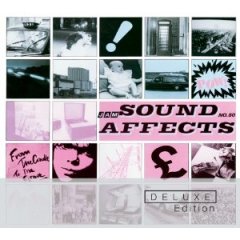 If Setting Sons had been dense
and even difficult for early fans of their fast'n'furious Mod-pop,
Sound Affects was akin to the Beatles' Revolver, an
album of different moods and observations, memorable songs, and a
confident band at ease with itself, if not the world around it.
If Setting Sons had been dense
and even difficult for early fans of their fast'n'furious Mod-pop,
Sound Affects was akin to the Beatles' Revolver, an
album of different moods and observations, memorable songs, and a
confident band at ease with itself, if not the world around it.
The Revolver reference was
bannered by the first single Start! which hijacked McCartney's
bassline and George Harrison's guitar part from Taxman off
Revolver. But it was That's Entertainment -- a bitterly
poetic, acoustic-driven attack on ordinary life in Britain – which
garnered the most attention. Although it was never a domestic UK
single it became their most covered song and the imported version
(with the brutal counterpart Down in the Tube Station at Midnight
on the flipside) charted.
Sound Affects (with an
inspirational poem by Shelley on the cover: “Ye are, as God has
made, ye, free . . .”) had a lukewarm reception at the time:
Patrick Humphries in Melody Maker said he admired it but
didn't like it; Paul du Noyer in the NME said there was filler
but where “[it] is good it's great, and where it's not so good it's
still good”.
That's fair: 11 songs, three classics
(that includes the stabbing riffery of Pretty Green, inspired
by Michael Jackson apparently), the insightful Man in the Corner
Shop and brittle But I'm Different Now and incendiary Set
the House Ablaze which could have fallen off Setting Sons
. . . and yes, a few lesser moments.
But Sound Affects rewards
re/discovery, and the Deluxe Edition has -- alongside the customary
booklet -- an extra disc which includes demo versions of the Beatles'
Rain and a taut And
Your Bird Can Sing (my favourite
ever Beatles' song, from Revolver),
the Kinks' Dead End Street and Waterloo Sunset, and various album tracks. Pop Art Poem anticipates The
Streets.
As you can hear from these extra
tracks, the context of Sound Affects was very British, and a
blueprint for Blur a decade later.
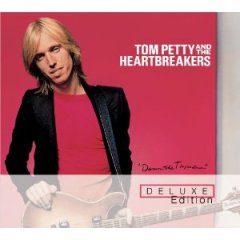 While Weller was working on this very
English album, Tom Petty and the Heartbreakers across the ocean were
refining their distinctively American sound for Damn the Torpedoes
in 79, their third album
in three years. Petty's power pop sound – grounded in the Byrds and
American garagebands – had faltered on You're Gonna Get It
of the previous year. Litigation, bankruptcy and a stubborn refusal
to play unless he had complete control of his career meant the stakes
were high for Torpedoes.
While Weller was working on this very
English album, Tom Petty and the Heartbreakers across the ocean were
refining their distinctively American sound for Damn the Torpedoes
in 79, their third album
in three years. Petty's power pop sound – grounded in the Byrds and
American garagebands – had faltered on You're Gonna Get It
of the previous year. Litigation, bankruptcy and a stubborn refusal
to play unless he had complete control of his career meant the stakes
were high for Torpedoes.
But the album bristled with sharp,
fat-free songs – Refugee, Here Comes My Girl, Even the Losers,
Shadow of a Doubt, Don't Do Me Like That (some bitterly autobiographical) – alongside the more
moody You Tell Me and the beautiful country-framed
Louisiana Rain which anticipated his time as a Traveling Wilbury.
The Deluxe Edition doesn't add much to
a perfect power pop-cum-rock album (four tracks, five live songs) but the live songs
direct you to that excellent, career-embracing four CD Live
Anthology of last year.
When Damn the Torpedoes was
released Petty's self-belief was vindicated: the album went to number
two in the US. It topped the NZ charts . . . but didn't even make the
top 50 in the UK.
Then again, the Jam's Sound Affects
only made it to 72 on the US charts the following year.
In the post-punk era tight songwriting
may have returned, but each nation was singing its own tune.
Down here in New Zealand we understood, and embraced,
both these albums . . . and now they are back. And wider.



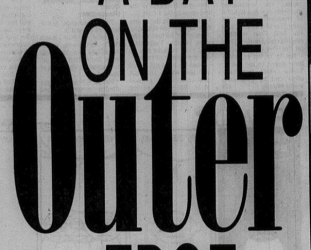
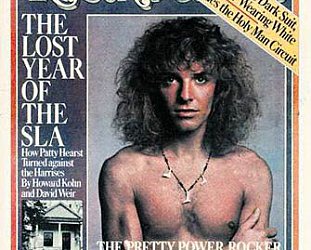
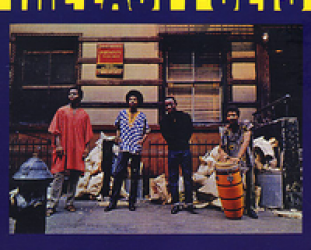

post a comment